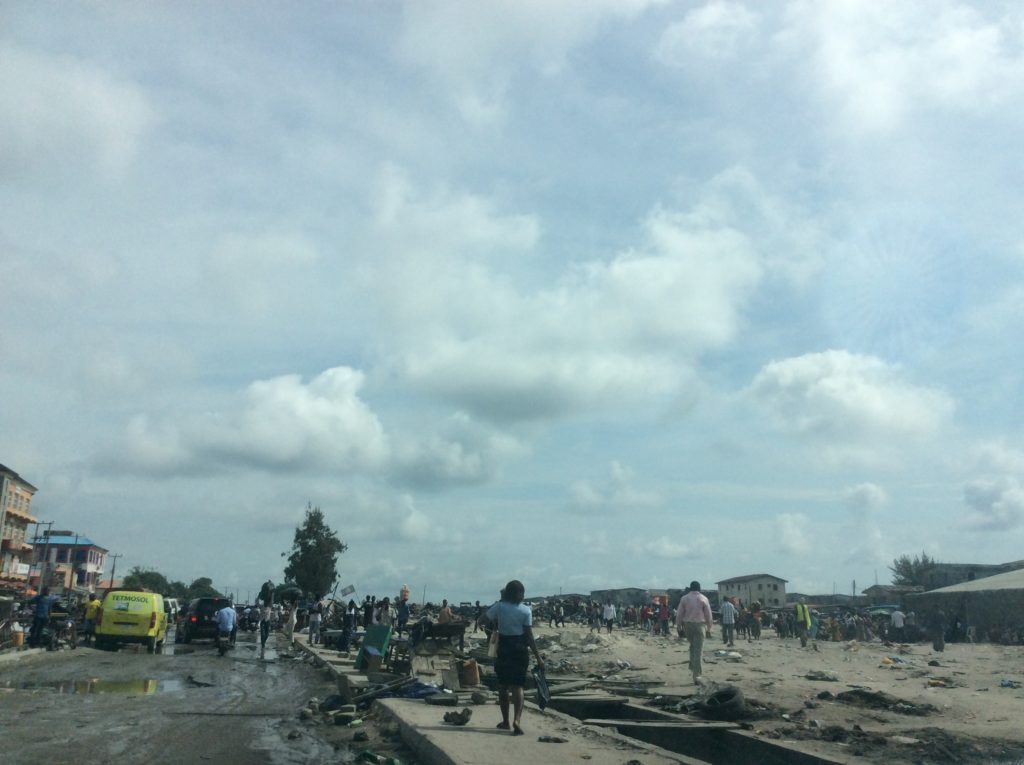 Driving by the Jákàńdè area of Lekki (5th roundabout) on Sunday, I noticed a few people with placards at the roundabout standing around with signs like “this is a peaceful protest, leave us alone here” or something to that effect. Behind them was a stretch of destruction that looked like a heavy storm had just passed through. (I’ve been to aftermaths of real life tornadoes, so I know). Behind them lay piles of debris as far as the eyes could see from the roundabout, made of brown roofing sheets and wood.
Driving by the Jákàńdè area of Lekki (5th roundabout) on Sunday, I noticed a few people with placards at the roundabout standing around with signs like “this is a peaceful protest, leave us alone here” or something to that effect. Behind them was a stretch of destruction that looked like a heavy storm had just passed through. (I’ve been to aftermaths of real life tornadoes, so I know). Behind them lay piles of debris as far as the eyes could see from the roundabout, made of brown roofing sheets and wood.
Before now, that area always looked a little too crowded, too dense, too unplanned to have been housing anything legitimately sanctioned by the state. But as we usually do to things that seemed out of place but seemed to satisfy those immediately concerned, we look away and assume that someone somewhere knows what they are doing. It seems, now, that the government has finally come to pay attention to the area. Now, after removing the shanty that had grown out of the space into a community of sex workers, touts, homeless vagrants, and other Lagosians of little means, what emerges is an open land seemingly ripe for some decent development.
This is probably the story of much of Lekki, anyway: a stretch of fresh land occupied by small communities of people now suddenly discovered by bigger powers with big equipment and big money ready to expand and develop the area for commercial purposes. The spot where the Jákàndè Circle Mall now stands used to be a shanty as well. Same with Márọ̀kọ́ at Sandfill which has now become a modern plaza with a big hotel. In all cases, after the owners of the land are compensated, a bigger human cost arises in the displacement of hundreds to whom these areas are all is left of home.
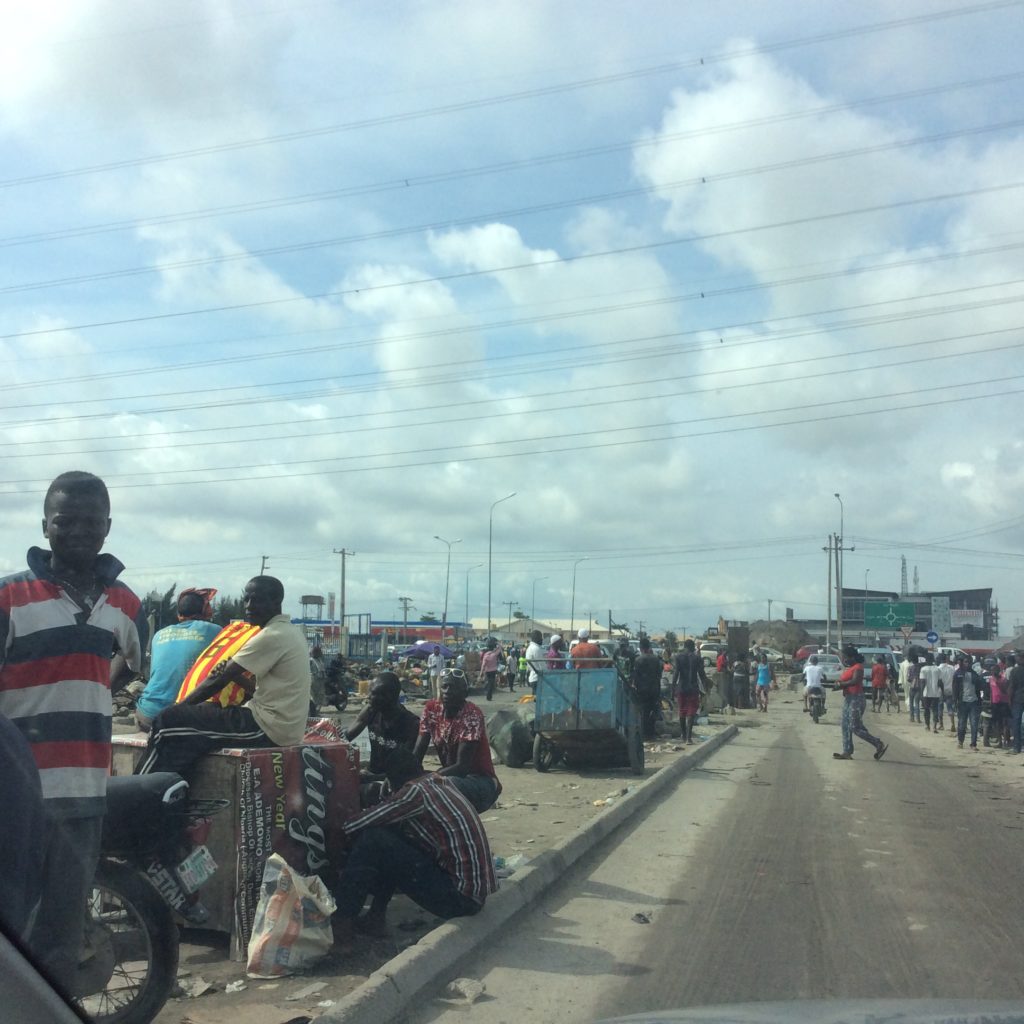 I wondered while driving through the beach road yesterday what the real cost would end up being. So far, we already have regular cases of carjacking and traffic robbery in early mornings and late evenings. There have also been kidnappings. According to the state government, these shanties are the real causes of such violence as they hide criminals who use them as springboards and hiding places. Demolishing their home and kicking them out would reduce violence and allow free passage of people. There is some allure in that thinking. Past upgrade of hitherto crime-ridden places in the state and the corresponding success in their removal of crime has shown the success of such an endeavour. Plenty spaces under abandoned bridges have been turned into public parks with lighting and security, making them easy to walk under at night without incident. But still, rendering homeless hundreds of residents at just 72 hours’ notice will no doubt have its own consequences. As I tried to read the despondence on the faces of all those I saw sitting around the open spaces, I wondered what those consequences would be in the long run.
I wondered while driving through the beach road yesterday what the real cost would end up being. So far, we already have regular cases of carjacking and traffic robbery in early mornings and late evenings. There have also been kidnappings. According to the state government, these shanties are the real causes of such violence as they hide criminals who use them as springboards and hiding places. Demolishing their home and kicking them out would reduce violence and allow free passage of people. There is some allure in that thinking. Past upgrade of hitherto crime-ridden places in the state and the corresponding success in their removal of crime has shown the success of such an endeavour. Plenty spaces under abandoned bridges have been turned into public parks with lighting and security, making them easy to walk under at night without incident. But still, rendering homeless hundreds of residents at just 72 hours’ notice will no doubt have its own consequences. As I tried to read the despondence on the faces of all those I saw sitting around the open spaces, I wondered what those consequences would be in the long run.
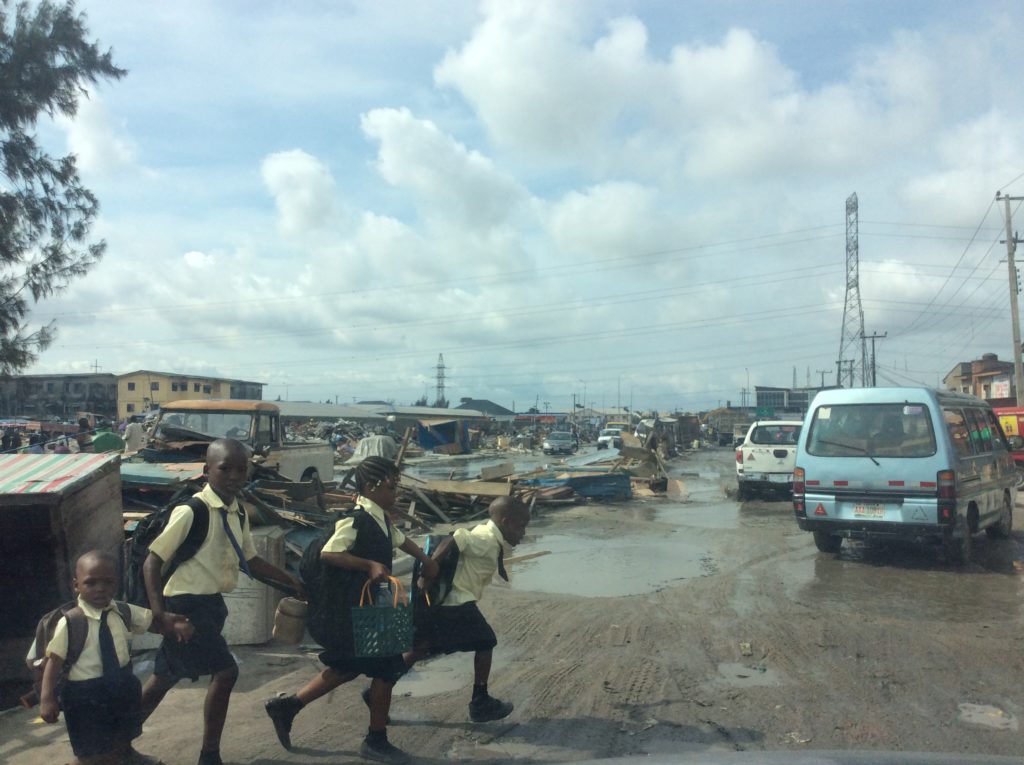 But in this case, unlike that of the demolition of the national monument at Lagos Island or other cases still under the outrage of surprised owners angry at the state’s seeming high-handed behaviour in destroying them, there seems to be an overwhelming public interest. But unless something of relevance is erected in this spot, all these gains will be lost soon enough. A sustained involvement in the redevelopment of the now levelled area would be a welcome event indeed.
But in this case, unlike that of the demolition of the national monument at Lagos Island or other cases still under the outrage of surprised owners angry at the state’s seeming high-handed behaviour in destroying them, there seems to be an overwhelming public interest. But unless something of relevance is erected in this spot, all these gains will be lost soon enough. A sustained involvement in the redevelopment of the now levelled area would be a welcome event indeed.
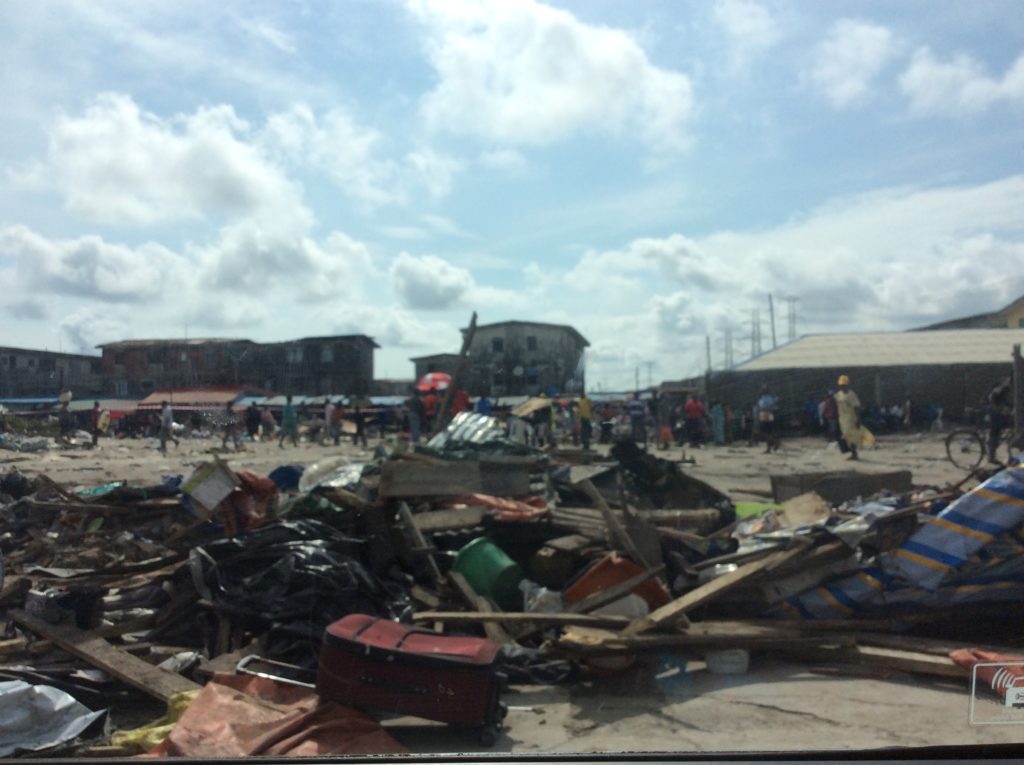
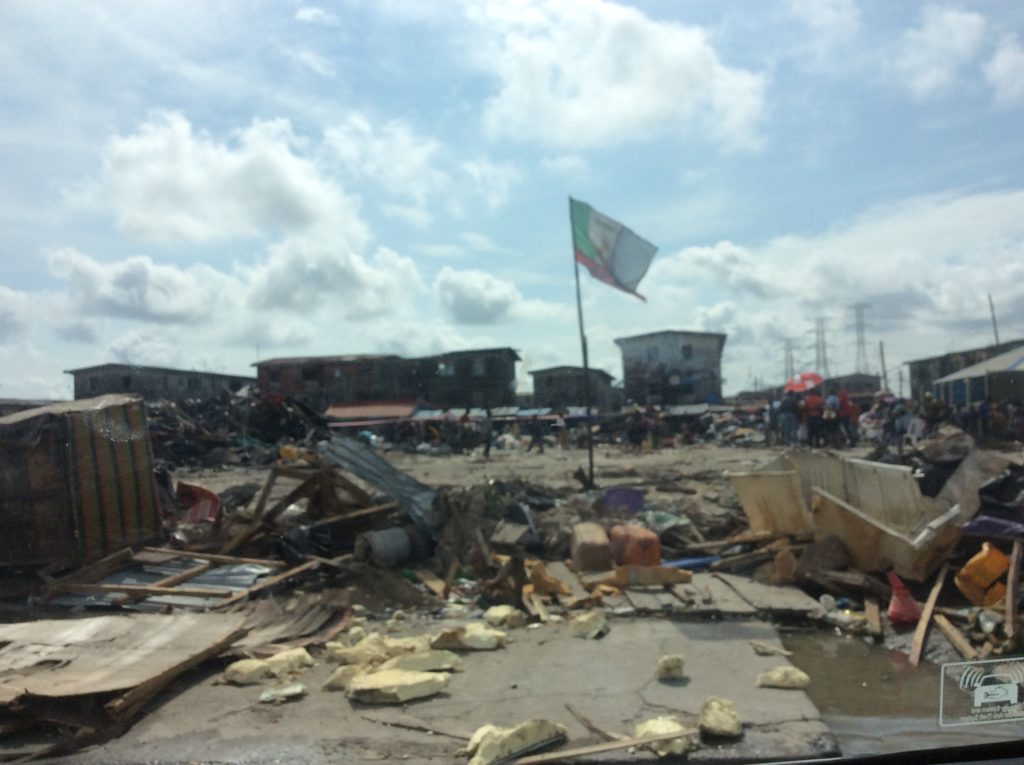
One Comment to Jakande Unclothed so far. (RSS Feeds for comments in this post)